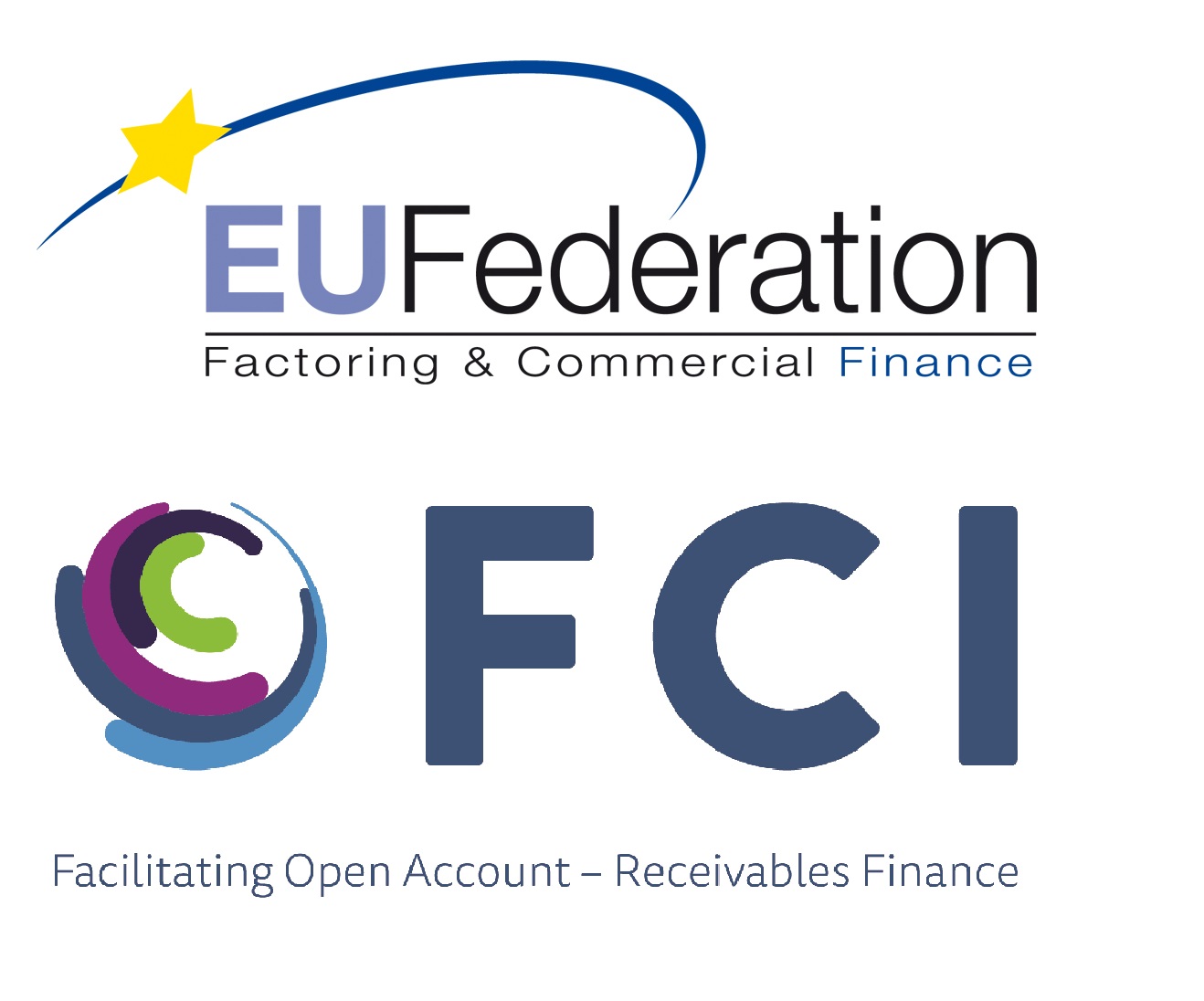Press Release: EUF and FCI held their first virtual EU Factoring Summit

Brussels, 6 November 2020
Today the EU Federation and FCI held their first online EU Factoring Summit in the COVID World. The webinar was attended by over 200 participants from around the world.
Françoise Palle-Guillabert, EUF Chairperson, introduced the webinar and highlighted the accomplishments of the EUF since she started her mandate as Chairman in 2018. EUF has numerous achievements including a significant reduction in long term liquidity requirements, NPL (Non-Performing Loans) with a more granular approach to factoring, and AnaCredit for which the EUF obtained some modifications. The association is still working on many advocacy activities including the EBA guidelines on loan origination and monitoring, an effective prohibition of ban on assignment, promotion of factoring as a response to the late payment initiative, implementation of Basel III for which new definition of default and credit insurance will remain sensitive topics. Françoise Palle-Guillabert concludes by highlighting “A great challenge still awaits us for the years to come with sustainable finance. Factoring has a role to play in promoting sustainable growth and development throughout the choice of activities to be accompanied by factors”.
Magdalena Barczak, Chair of EUF Economic and Statistics Committee presented the 2019 final statistics and first half 2020. The final 2019 statistics can be found on EUF website. As expected, 1H 2020 shows the first slow down in EU factoring statistics since 2008 with a drop of -6%. Leading countries in the EU suffered a big slump. Nevertheless, some countries like Germany, Denmark, the Netherlands, Norway, and Poland showed an increase during the first half 2020.
Peter Mulroy, FCI Secretary General presented the global picture of the Factoring Industry, reporting a 5.4% increase in global volume in 2019. However, the figures are much more challenged in 2020. In comparison to the situation of factoring in the EU, the rest of the world seems to be experiencing more difficulties. Besides the 6% decline in the EU for the first half 2020, FCI also reported a drop of -25% in transaction volume in their EDI platform in the same period, including a drop in Asset Based Lending activity with the same negative figure of -25% as reported by the SFNet in the 2nd quarter 2020.
Patrick de Villepin, FCI Chairman, moderated a panel on the impact of COVID-19 in the EU. Different regions were represented with Magdalena Wessel (DKF, Germany), Fausto Galmarini (Assifact, Italy), Søren S. Larsen (Midt Factoring A/S, Denmark), Andrzej Zbikowski (Polish Factor Association, Poland) and Louis-Marie Durand (Euralia, the public affairs agency of the EUF, representing EU). The panellists agreed that the situation in 2020 is difficult for the factoring industry even if Germany shows better results. The various government initiatives to support the financing of SMEs helped the economies in the EU during these difficult times. The future will depend on how the Coronavirus evolves so none of the panellist risked to give a clear vision of the future. But the outlook for 2021 is seen more positively for the global economic situation.
Diego Tavecchia, EUF Chairman of the Prudential and Risk Committee presented the more relevant issues facing the factoring industry in 2020/2021 namely the EBA Guidelines on loan origination and monitoring, the new definition of default and Basel III.
Magdalena Wessel, EUF Chairman of Legal Committee reported on the main legal advocacy issues being “EUNIFICATION” of AML (anti-money laundering), the EU Supply Chain Finance study, the regulatory gap in Rome I-regulation and the review of the late payment directive.
After a short Q&A, Patrick de Villepin finished the online Summit highlighting the important role the EUF plays for our industry today more than ever and confirming FCI’s support regarding the lobbying of the new definition of default with the EBA. He concluded by saying “Even though we will experience a bumpy year ahead, Factoring will be in high demand once the crisis subsides. In such a difficult environment, companies will look to mitigate the risk of their receivables.”
ENDS
Notes to Editors
About EUF
The EUF is the Representative Body for the Factoring and Commercial Finance Industry in the EU. It comprises national and international industry associations that are active in the region. Its members represent 97% of the Industry turnover.
The EUF seeks to engage with Government and legislators to enhance the availability of finance to business, with a particular emphasis on the SME community. The EUF acts as a platform between the Factoring and Commercial Finance Industry and key legislative decision makers across Europe, bringing together national experts to speak with one voice.
Data has been adjusted to ensure that currency exchange rate fluctuations do not distort the results.
For more information and full data analysis:
See our website: www.euf.eu.com
Contact info@euf.eu.com louismarie.durand@euralia.eu
About FCI
FCI was set up in 1968 as a non-profit global association for factoring companies around the world. Today, FCI has grown into the world's representative factoring and receivables finance business network and association with close to 400 members in more than 90 countries. Today, FCI is truly the global representative body for the Factoring & Receivables Finance Industry.
FCI offers three major areas of activities:
CONNECT: the Business network supports cross-border factoring activities through which its members cooperate as export and import factors
EDUCATE: FCI promotes and develops best practices in both domestic and international factoring and related Open Account Finance products
INFLUENCE: FCI promotes and defends the Industry with stakeholders and policy makers worldwide
See our website: www.fci.nl
Contact: fci@fci.nl
